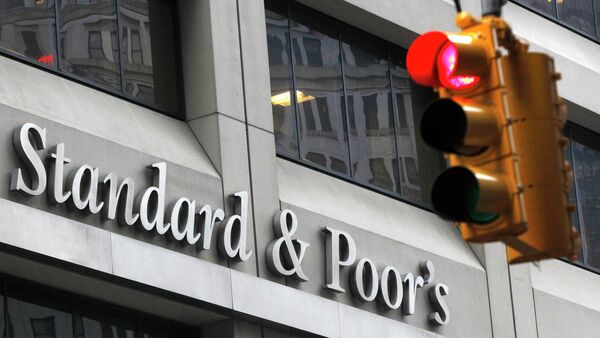Kristian Rouz – After the international financial research agency Standard & Poor’s downgraded its debt rating for Brazil on September 9, 2015, multiple enterprises from Asia-Pacific, including a dozen of Indian firms, suffered a blow to their market value due to their exposure to financial risks and growth projections for Latin America’s largest economy.
The S&P downgrade is seen as impairing the efforts of President Dilma Rousseff’s administration to attract investment thus bolstering growth in Brazil, which is trapped into an ongoing political crisis, closely connected with austerity debate and fiscal inconsistency.
S&P cut Brazil’s souvereign rating to BB+, the highest junk rating, from the previous BBB-, the worst of the investment-grade ratings. Brazil was given its first favorable debt rating in 2008, meaning the current S&P downgrade will throw the nation 7 years back in time in terms of investment appeal, a major blow to the Rousseff administration.
Whilst the left-wing Brazilian President has thus far failed to end the ongoing recession by increased budget spending due to mismanagement, inefficient planning and corruption, the weakness in public finance and the private sector has triggered a massive flight of capital. Global economic headwinds like falling commodity prices also have played their role. Thus, the S&P downgrade is a mere statement of fact.
Meanwhile, as Brazil is miring deeper into economic inefficiency, as the S&P downgrade has severely battered the market value of several Asian-based enterprises involved in business ventures in the South America’s largest economy. Among those companies hit are the Singapore-based holding enterprise Sembcorp Industries, involved in marine cargo shipping to and from Brazil. Global Logistic Properties also suffered losses. In mainland China, the machine parts-maker Citic Heavy Industries was hit due to their exposure to Brazilian risks, along with TCL Corporation and Shenzhen Absen Optoelectronic.
A dozen Indian companies were also affected, including the Mumbai-based electronics maker Videocon Industries and Oil and Natural Gas Corp, which is involved in exploration and drilling off the coast of Brazil.
Korean giant like LG and Samsung Electronics suffered losses due to their heavy presence in the Brazilian market.
Meanwhile, Brazil’s leftist administration has proposed several tax hikes in an attempt to fix the disastrous fiscal situation. Next year’ federal budget will be in the red, the Brazilian government admits. The presidential chief of staff Aloizio Mercadante proposed tax increases in order to narrow the 2016 budget deficit, now planned at $7.9 bln.
Brazil is suffering the worst economic recession in 25 years, while the political crisis in the country is also deepening. The business-friendly right-wing political forces seem to be encouraged by the current government’s inability to address economic trouble, with the national currency, the real, having slumped 30% this year and inflation beating 10%. On Thursday the day after the S&P downgrade, the real is forecasted to drop to its 13-year lowest.




